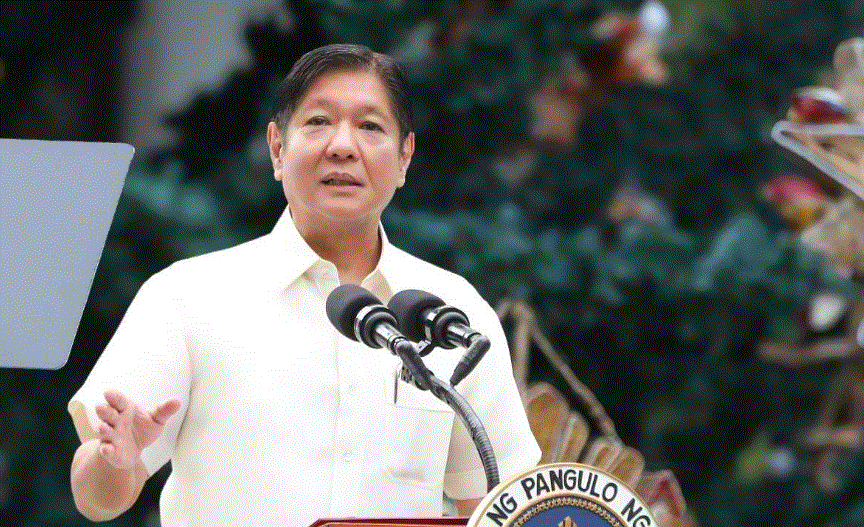Marcos to sign P6.352-T proposed budget on Dec. 30 — PCO

President Ferdinand "Bongbong" Marcos Jr. will sign the P6.352-trillion proposed national budget for next year on December 30, 2024, according to Presidential Communications Office acting Secretary Cesar Chavez on Tuesday.
"Signing on 30 December 2024 after the Rizal Day program in Manila," Chavez told Palace reporters.
Marcos was supposed to sign the P6.352-trillion national budget plan for next year on December 20.
However, Executive Secretary Lucas Bersamin said it did not push through to allow for a rigorous and exhaustive review of the measure.
Bersamin had said that Marcos was consulting with the heads of major departments for the budget.
Marcos earlier expressed optimism that the budget will be signed before the end of the year.
Section 25 (7), Article VI of the 1987 Constitution states that if by the end of any fiscal year Congress failed to pass the General Appropriations Bill (GAB) for the ensuing year, the General Appropriations Act (GAA) for the preceding year shall be deemed reenacted and shall remain in force and in effect until the GAB is passed by Congress.
Fiscal years 2001, 2004, and 2006 all had reenacted budgets, according to the Department of Budget and Management.
There were also partial reenacted budgets in fiscal years 2003, 2005, 2008, and 2009, the DBM added.
The Senate and the House of Representatives earlier ratified the bicameral conference committee report on the GAB, which retained the P733-million budget of the Office of the Vice President; reduced the budget of the Department of Education by P10 billion; and allocated P26 billion for the Ayuda para sa Kapos and Kita Program (AKAP).
EXPLAINER: How the President's veto works on the national budget
Under the Constitution, the President could veto provisions of the budget bill.
Senate Minority Leader Aquilino "Koko" Pimentel III, a former Senate President and a lawyer, had said that ordinary measures vetoed by the President are considered outrightly rejected.
Article VI, Section 27(2) provides that the President can "veto any particular item or items in an appropriation, revenue, or tariff bill, but the veto shall not affect the item or items to which he does not object." This is what deemed by lawmakers as ''line-item veto.''
Imee reacts
Reacting to the Palace announcement, Senator Imee Marcos continued to express her opposition to the signing of the budget bill.
"Like a thief on the night before New Year!" Senator Imee said in a text message.
"Unless they have a different way of computing budgetary allocations for education, dapat tapyasan nila ng at least P188 [billion] ang public works para hindi ma-violate ang Constitution. So there may be at least P188 [billion] worth of rewards sa (in the) unprogrammed [appropriations] for the old ye faithful," she said.
(Unless they have a different way of computing budgetary allocations for education, they should reduce the at least P188 billion proposed budget for public works so they won't violate the Constitution.)
"If the President does line item veto, they cannot use the [appropriations] of the items vetoed to fund or augment other items in the budget. They will have less projects to fund which may translate to a deficit lower than what was originally programmed, [which] may be a good- or maybe bad... thing, depending on who's counting," Senator Imee said.
Among the items that she had criticized are the P26 billion for the controversial Ayuda sa Kapos ang Kita Program or AKAP, zero subsidy for Philippine Health Insurance Corporation (PhilHealth), the increase in the budget of the Department of Public Works and Highways to P1.1 trillion, and the reduction in the budget of the Department of Education, particularly in its computerization program. — with Hana Bordey/VDV/RSJ, GMA Integrated News




